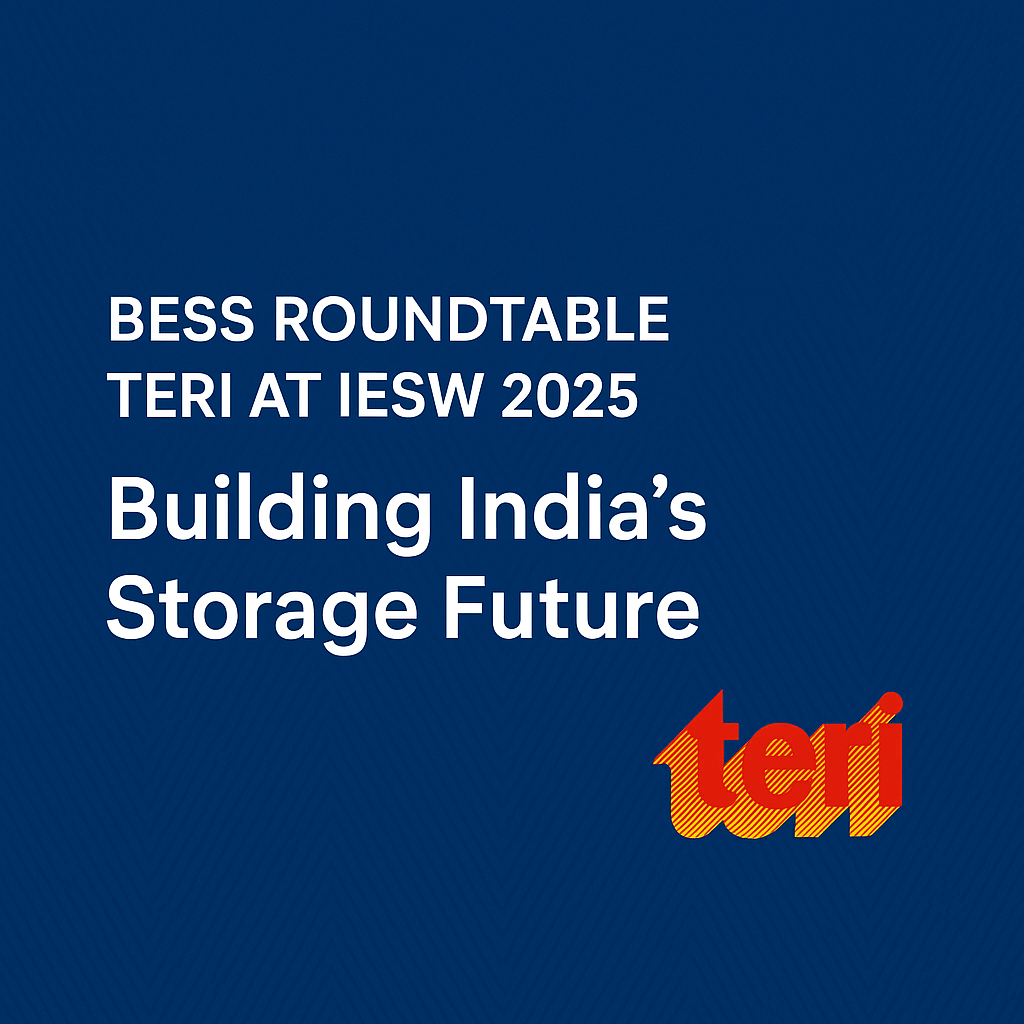
🗓 Date & Time: July 10, 2025 | 11:30 – 13:00 IST
📌 Venue: Yashobhoomi, IICC, New Delhi
More Details: TERI IESW Roundtable 2025
Overview
As India advances rapidly towards a renewables-led power future, grid-scale Battery Energy Storage Systems (BESS) are pivotal for ensuring stability and clean energy integration. On July 10, TERI convened a roundtable discussion, “BESS Capacity Development: Challenges and Improvements,” during IESW 2025. The forum brought together a diverse mix of stakeholders—from developers and manufacturers to DISCOMs, training bodies, financiers, and government agencies—to diagnose key bottlenecks and chart actionable strategies for scaling capacity. TERI IESW Roundtable 2025
Also Read: NHB Architectural Competition 2025: Prizes up to ₹3 Lakh
Key Topics & Themes
- StoREin Project & Skill Gaps
- Presented by Bernhard Max Voelcker (GIZ India) and Sachin Singh (TERI), with context set by Dr. P.K. Bhattacharya (TERI) and Sudeep Jain (MNRE). The session evaluated critical skill gaps in BESS deployment and provided an overview of StoREin’s initiatives.
- Multi-stakeholder Dialogue
- Hosted by moderator Alekhya Datta (TERI), with Arpit Sharma (Skill Council for Green Jobs) as co-moderator. Participants included developers, integrators, DISCOMs, training institutes, policymakers, financiers, and NGOs—examining technical, regulatory, and financial barriers.
- Closing Remarks & Networking
- The session concluded with group reflections, a photo-op, and a networking lunch—reinforcing cross-sector collaboration to accelerate BESS scale-up.
Why It Matters
- India is targeting ~47 GW of BESS capacity by FY 2031‑32 to support its growing renewable portfolio.
- However, recent industry analysis highlights hurdles such as persistent supply-chain constraints, project cancellations, and domestic manufacturing gaps.
- TERI’s roundtable served as a vital forum to unpack these challenges and collectively explore solutions—from skill development and incentives to standardised regulations.
Also Read: Workshop on GRIHA for Interior Spaces
Insights & Next Steps
This high‑impact discussion identified key areas for action:
- Comprehensive BESS Skill Ecosystem
Development of curricula and certification for roles ranging from installation to O&M. - Standardisation and Policy Support
Streamlining regulations, incentives, and procurement norms—building on schemes like VGF—was seen as critical. - Supply-Chain Resilience
Pushing for domestic component manufacturing, simplifying import rules, and strengthening local vendor pools. - Aligning Finance & Project Risk
Replicable project models, risk-sharing mechanisms, and performance-based initiatives to boost investor confidence.
Final Takeaway
TERI’s roundtable underscored the multifaceted nature of BESS capacity expansion: from skills and standards to finance and supply chains. With India poised to scale storage infrastructure as a backbone of its energy transition, such cross‑sector dialogues are crucial. Moving ahead, TERI aims to support implementation through its StoREin initiative and ongoing engagement with stakeholders.
